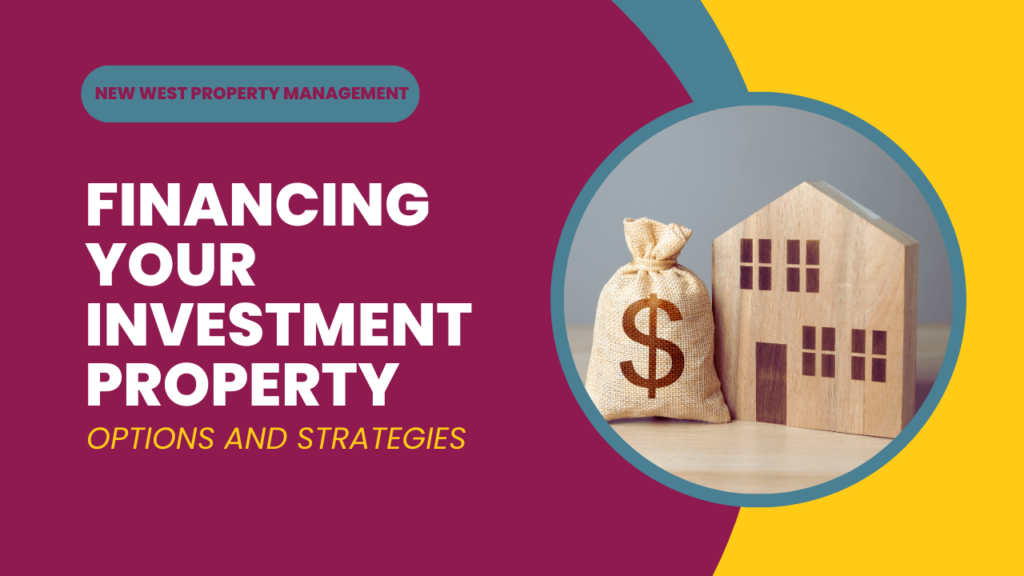
When it’s time to buy a Las Vegas investment property, how are you going to pay for it?
This has to be one of the first questions you ask yourself, and regardless of your financial situation, it’s not always an easy one to answer.
Lending is trickier than it once was, and high interest rates lead to expensive mortgages. This has sent investors looking for other options.
Let’s not despair. And let’s not pay in cash if you don’t have to.
Here are some of the options and strategies we have discussed with Las Vegas real estate investors recently. What you ultimately decide will depend on your own financial strength, your tolerance for risk, and the size of your current investment portfolio. Don’t forget there are always tax considerations and loan terms to consider when you’re deciding how to pay for your investment property.
We can offer you our best insights as Las Vegas property management experts. We’d also recommend you talk with an accountant or a tax professional.
A Review of Typical Lending Products for Investment Properties
Let’s start with a look at some of the more common ways to finance a property. It doesn’t matter if you’re a new investor or someone who is steadily adding rental properties to a growing portfolio; these financing methods have been done before. You have to find the right broker, a good lender, and have a solid understanding of what it means to borrow in these ways.
Here’s what we can tell you.
- Home Loans and Mortgages: Traditional and Stable
The first type of lending that most people think of when it comes to buying a home, whether it’s a home you’ll live in or one you’ll rent out, is a conventional mortgage. With a traditional mortgage, investors can generally borrow up to 80% of the property’s value, assuming you’ll have 20% to put down. This, of course, will depend on the lender and your own credit, debt, and income.
When choosing to finance your investment property with a mortgage, it’s essential to compare different mortgage options. Lenders will offer their own rates and terms, and you’ll need the most cost-effective deal in order to maximize what you earn.
It’s not just your own financial standing that matters. The bank or credit union making the loan will want to know about the property, including its condition and age as well as its appraisal value, before they offer you a loan. This will impact the loan you’re offered and the interest that you’re paying.
Unless you’ve been living under a rock over the last year or two, you know that interest rates are high right now and while we expect them to come down eventually, they haven’t yet. As mortgage rates remain historically high, it’s not as easy to get the loan you want in the amount you need. This should not scare you off from applying for a traditional loan, it’s simply something to be aware of as you shop around for the best rates and evaluate your own creditworthiness.
- Private Loans: Hit Up Who You Know
A lot of investors will tap into their own personal and professional networks when they need to borrow money for their next acquisition. If you have connections within your network who are well-funded and looking to make an investment in you and your potential property, get that conversation going.
With a private loan, you’ll borrow money from someone (or a group of people) who have the money to lend. Loan terms will be dependent on the buyer and the lender. You want to know who you’re dealing with, and you want to trust them. Some private lenders can be predatory and even dishonest. Get a good loan agreement in place that clearly outlines the amount being borrowed, the amount being paid back, and the terms of that repayment. You’ll have contingencies that need to be covered, too.
- Hard Money Loans: A Short and Sweet Option
Hard money loans can work very well when you’re investing for the short term or planning to refinance in the very near future. When you need quick cash to take advantage of a good investment opportunity, you can access this money immediately. If your investment goals include flipping properties, a hard money loan is a great way to get the funds you need.
Be prepared to pay for this type of borrowing. Short-term hard money loans are likely to have higher interest rates than traditional loans. They are primarily based on the value of the property instead of the borrower’s creditworthiness and financial standing, which is why they can be approved much faster. Remember that the clock is working against you, not with you when you have a hard money loan. You’ll likely have to sell your property or refinance it within a couple of years.
- Government Loans When You Qualify
You might want to look into a government loan if your own residential plans fit the requirements.
There are several government loan programs designed to stimulate the property market and enable more people to invest in real estate. For instance, the Federal Housing Administration (FHA) offers loans to investors who wish to purchase a multi-unit property and occupy one of the units. These loans typically offer competitive rates and may require smaller down payments than traditional mortgages. You can also use a Veteran’s Administration (VA) loan to buy an investment property as long as one of the units in that property becomes your primary residence.
Clearly, this won’t work for every investor. It’s something to consider, however, especially if you’re looking for your own place to live and you need generous lending terms.
Using Home Equity to Finance an Investment
Now that we’ve been through some of the more traditional or common financing options, let’s look at other ways to pay for your investment property if that mortgage or that loan isn’t going to work for you.
You can start by examining your existing assets. If you already own property, tapping into your home equity can be a powerful tool. A home equity loan will give you a specific sum of money that you can use to finance a new home purchase. This will come with a higher interest rate than you might get with a line of credit.
A home equity line of credit (HELOC) can provide you with funds up to a certain limit, which you can draw from to pay for your investment property. The interest rates can be lower than other types of loans, but bear in mind that your first home becomes the collateral, which presents its own set of risks.
Encountering a Seller Who Wants to Finance Your Purchase
We are often asked about seller financing. When it comes to Las Vegas investment property, this can actually work for a large number of investors. You have to know where you stand, what you’re getting, and what the expectations are on your end and your seller’s end.
In this scenario, your Las Vegas seller is acting as a lender. They’ll put you on the title of the property you’re buying, and in return, you will sign an all-inclusive trust deed and promissory note. Your documentation would include:
- An agreed upon sales price
- The fixed or variable interest rate
- An amortization schedule
You’ll know when your monthly payments are due, and how much they will be. You agree contractually to make these payments on a monthly basis.
Most seller financing agreements include a balloon payment, which is made in three, five, seven, or maybe 15 years. At that point, the full amount of the loan is due. The sellers sign the property over to you at the same time they’re signing the promissory note. If you default, they have the right to act as if they were the bank, and they can take the property back from you.
With a seller financed deal, you and the seller will negotiate and agree to who pays for what during the term of the loan. There will be insurance to cover, property taxes, and of course any maintenance or repairs that are needed.
The most important thing to understand is when you have to pay off the balance. We know property mortgages often have 20 or 30 year amortization schedules. These seller-financed loans are expected to be paid off faster. When your balloon payment is due, you’ll want to be prepared to refinance. The good news is that refinancing will allow you to take equity out of the property that you essentially own. You’ll get that equity by putting money into the home or paying down the loan balance or increasing the value. You’ll refinance the loan and pay off the seller.
However you decide to finance your Las Vegas investment property, we always encourage you to have your contract and agreement reviewed by an experienced real estate attorney.
 We can help answer any questions as your Las Vegas property management resource and investment partner. Contact us at New West Property Management. Our team expertly manages residential rental homes in Las Vegas and throughout Clark County, including Henderson and North Las Vegas.
We can help answer any questions as your Las Vegas property management resource and investment partner. Contact us at New West Property Management. Our team expertly manages residential rental homes in Las Vegas and throughout Clark County, including Henderson and North Las Vegas.
